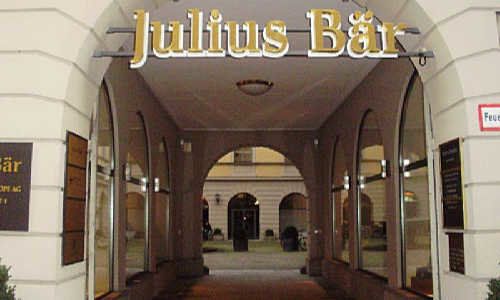Julius Baer's net profit tumbled as the Swiss private bank missed targets on winning fresh client money. It also took a financial hit from job cuts disclosed earlier this year.
The Zurich-based bank's net profit for the first half fell nearly 23 percent to 343.1 million Swiss francs ($349.3 million), it said in a statement on Monday. Spending, including 17 million francs in a job-cutting program, and revenue fell on less income from commissions, interest, and trading.
The six-month report comes as the Swiss private bank prepares to swap out CEOs at the end of next month, following a torrid period of scandals – and clean-ups – including Venezuelan corruption money. It has also come down to earth after an era of heady growth under previous CEO, star banker Boris Collardi, laying off 100 bankers and lowered its profit ambitions.
To be sure, Julius Baer managed to improve on a poor tail-end of last year: CEO Bernhard Hodler said the improvement was down to a recovery in client activity and asset valuations. Managed assets rose 8 percent from year-end to 412 billion; including custody funds, it reached 479 billion.
Clean-Up Sparks Withdrawals
Julius Baer's net new money stood at 3.2 percent on existing assets, which is below its target of 4 percent to 6 percent. The wealth manager's acquisition of Kairos burdened the result: the Italian asset manager leaked assets (Julius Baer has slated it for sale).
The bank said it also suffered withdrawals due to a three-year, 87 million franc clean-up dubbed Atlas: «Net new money was also negatively impacted to some extent by a limited number of client exits in the context of the ongoing client risk review project (which is nearing completion),» Julius Baer said.
The bank also subjected clients more widely to negative interest rates on cash, mainly in francs and euros, which appears to have sent several customers packing. The bank's cost-income ratio stood at 71 percent, which is a sequential improvement, but still well off the 67.3 percent it managed year-ago. It said the cost-cutting is on track but won't be fully felt later this year, and in 2020.
More to follow


































